How to Make the Tough Decision to Not Breed Your Dog
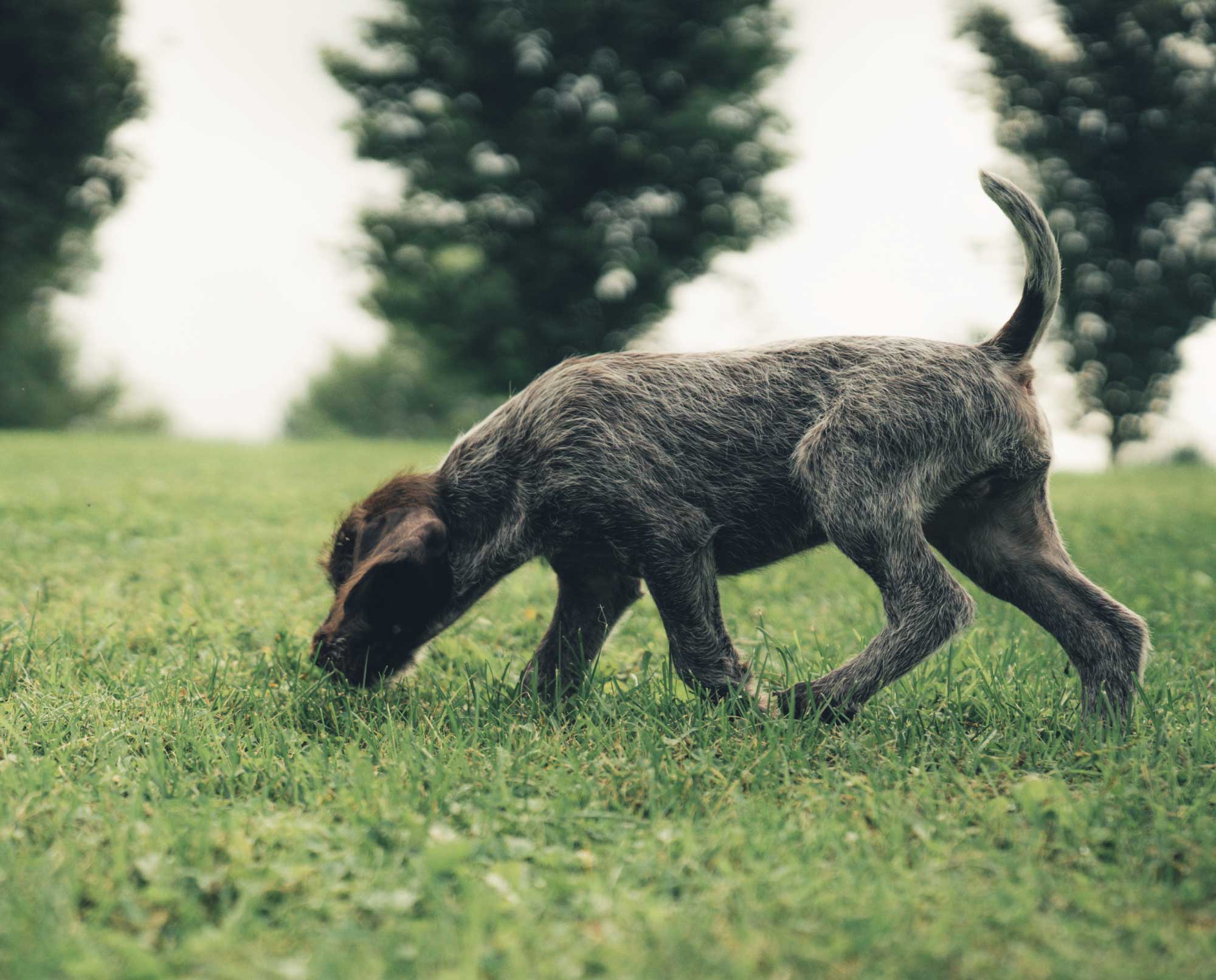
Letting go of the dream to breed your bird dog
Our dogs are with us for just a short period of time. During those years, we develop such strong bonds with our dogs that we can’t stand the thought of living without them. Knowing that we will inevitably part ways, many folks consider becoming a breeder or chasing the genetics that may someday recreate a carbon copy of the dog they love so much. However, good breeding will only get you in the ballpark of cloning your beloved dog at best. So many irreplicable factors, both environmental and genetic, make a dog what it is.
We would never consider having two children who are exactly alike, though in breeding dogs, folks think they somehow can. Unfortunately, there are way too many people deciding to breed their dog. Nefarious puppy mills aside, good, respectable folks are breeding simply for the wrong reasons. They lack the support system necessary to guide them in the right direction.
For many, to have someone mention that their dog shouldn’t be bred is an act of war. This suggestion is often met with strong language and social repercussions. Understandably, these folks are blinded by love and already miss what they haven’t lost. They are bound and determined to carry on their dog’s legacy. To steer these folks into making the difficult decision to not breed takes guts, facts, tact, and a ton of patience.
There is so much out there on good breeding practices, though there’s very little information to help potential breeders navigate away from breeding their dog. I’d like to share a few approaches which will assist you in having these difficult conversations with potential new breeders (or yourself).
Identify the motivations to breed the hunting dog
Is it a fuzzy face infatuation that pulls at your heartstrings? Or is it that your dog is a bird-finding machine? For most, it’s probably a combination of the two. When deciding to breed or not to breed, be honest with your motivations. That adorable face comes with heavy liabilities and responsibilities. Unfortunately, the fact that you’re in love with your dog doesn’t necessarily mean it has the genetic traits to better its breed and produce a good hunting dog.
There are temperamental, health, and emotional risks when it comes to breeding your dog. Potentially, your dog could pass along temperment issues that could put the owners of your dog’s puppies at risk. You could pass along skeletal or muscular issues that would limit the dog’s ability as a hunter or even to live a life without suffering. Never let your feelings interfere with you making the right choice. Your choice to breed has the potential to impact a large group of buyers and their families. The impacts of poor breeding is a heavy weight to bear.
Understand the risk factors
Be sure to account for all risks that go into having a litter. Breeding has severe medical and financial risks associated with it. The loss of life in the breeding process is commonplace for both the bitch and her puppies. It’s important to be aware of the many complications that can occur during pregnancy and the birthing process, too.
Additionally, puppies are susceptible to many diseases and environmental hazards. They are designed to put themselves in harm’s way. It is nearly a full-time job to raise a litter. The potential for great emotional and financial loss needs to be considered. Even successful breeding causes stress. The enormous responsibility of raising a litter, finding the right homes, and supporting the buyers in the pup’s development is a monumental undertaking.
How do you know if you should breed your dog?
Good hunting dogs campaign themselves. They often require very little advertising to place puppies in good homes. A good rule of thumb should be that if you don’t have ten of your buddies kicking in your door for a pup, you likely shouldn’t be breeding. The last thing any breeder wants is having puppies left without good homes.
Find the right home for your litter
Many folks come to us thinking we are going to try to sell them a pup. In actuality, we do the opposite. To the surprise of many potential buyers, they are heavily vetted. We require proof that the buyer has the resources to provide the pup with the best opportunity to be raised in a loving hunting family. We believe our pups have so much potential, they require only the best hunting homes. We will happily re-home any pup that doesn’t seem to fit with its new family. This allows us the opportunity to assure each and every pup finds the right home. The networking and communication to align pups with a home is very labor intensive; it’s a year-round commitment.
Breeding Correct to Correct
No dog is perfect. However, to be considered breed-worthy, a dog needs to fall within a high standard of excellence both in form and function. Folks underestimate how many breedings it takes to get away from certain genetic faults found within a dog. If you don’t believe your dog is correct in either form or function, it shouldn’t be bred.
Sit back and ask yourself if there was anything you would change or improve upon in your dog. If you say nothing, you’re likely not being honest with yourself and should ponder it a bit longer. If you find you are breeding away from major problems, you shouldn’t be breeding. Do your research and investigate both sides of the breeding. Also, don’t take credit for the faults in your dog. I’ve heard the sentence, “If I had known how to train better, my dog wouldn’t have turned out this way” many times. Though this may be true, it could be genetic faults that put you in the situation in the first place. It takes an experienced eye to delineate the difference. It would be worth seeking out an expert in the breed to know these things for certain prior to considering breeding.
Understand what is required of you as the breeder
You will be in a marriage with each and every puppy buyer. In most cases, you are their mentor, their trainer, and even their therapist at times. Buyers will rely heavily upon you to get what they need. You will need to be well-versed in dog training and testing of your pups, the genetics of your line, the medical requirements, and proper care of hunting dogs. You will need to be prepared for late night emergency calls and questions. Overseeing the well-being of a litter is a heavy, long-term responsibility required of all breeders.
When you close your eyes at night and can be true to the situation, will breeding your dog better the breed as a whole? It’s an extremely difficult conversation to have. Deciding not to breed feels like the loss of your best friend, the best hunting partner you ever have known, the most loyal companion that brings you so much happiness. However, those memories will always be a part of you. Your next hunting partner adds to the narrative, though they can never replace the dogs before them.
The decision to breed a dog is a heavy one. To make the decision to not breed is even more difficult. As a community of hunting dog lovers, we need to support one another. We need to listen and be sympathetic towards those making the tough call.
Instead of breeding, the extra time and energy can be directed towards the exciting process of chasing genetics, networking with breeders and researching comparable lines. It’s an honorable alternative that, in the end, will better breeding lines and strengthen the genetic pool. This will make it that much easier to find your next best hunting partner in the future.
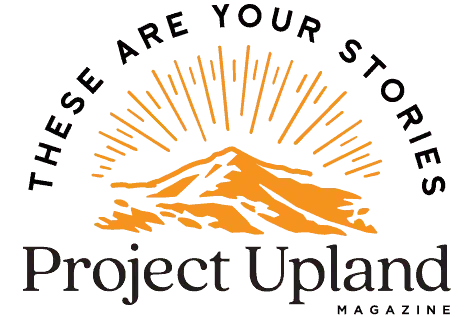


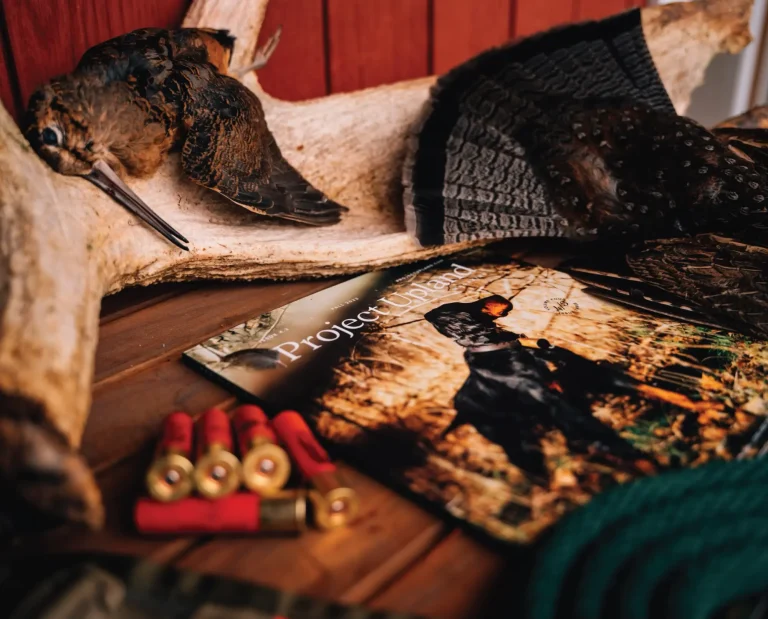
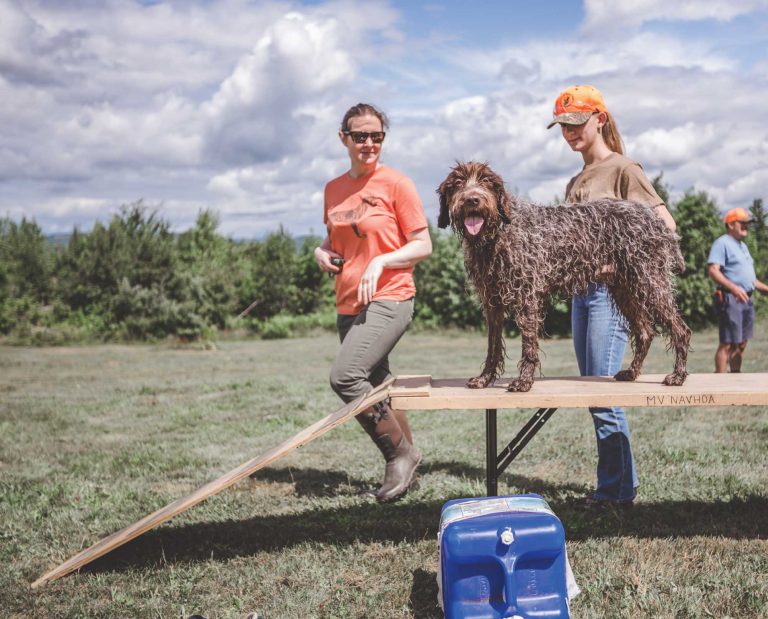
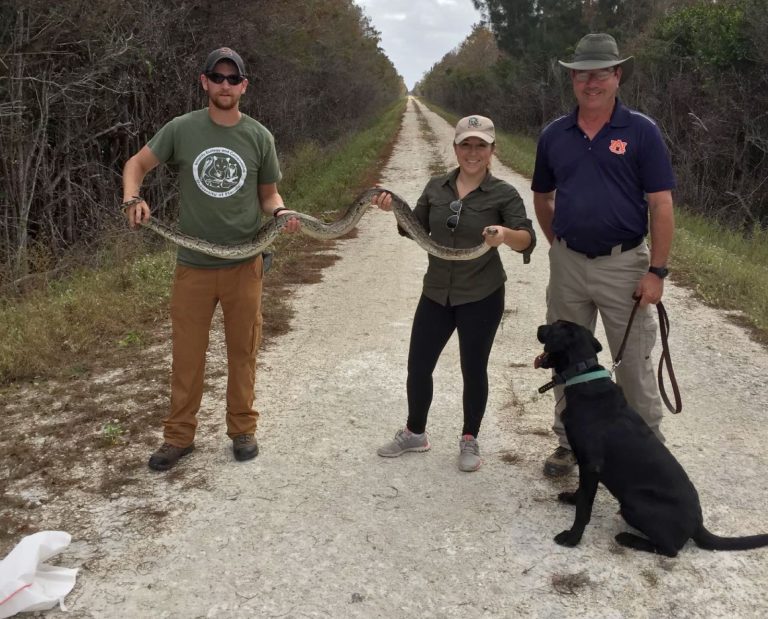
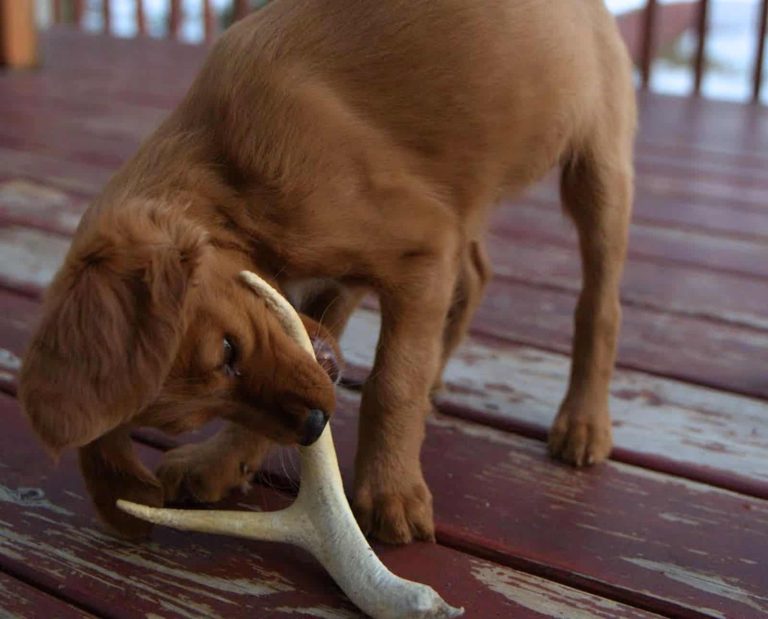
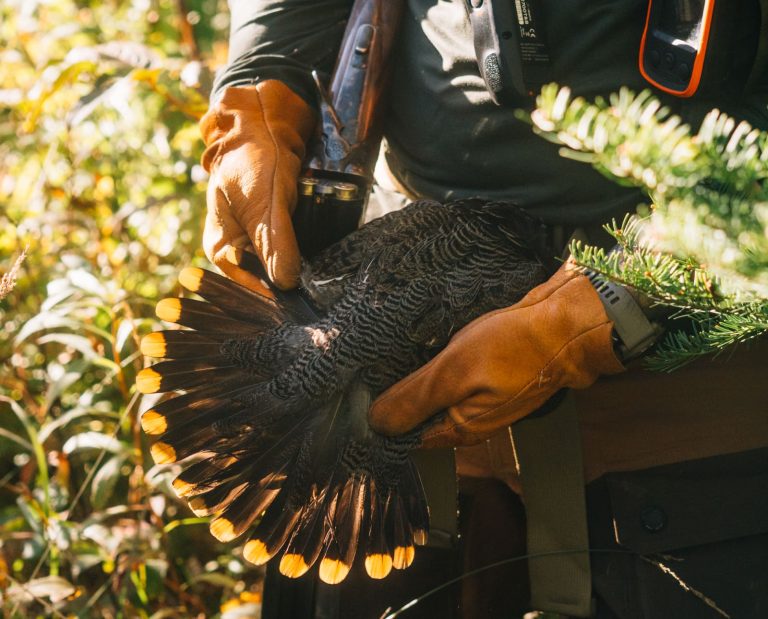
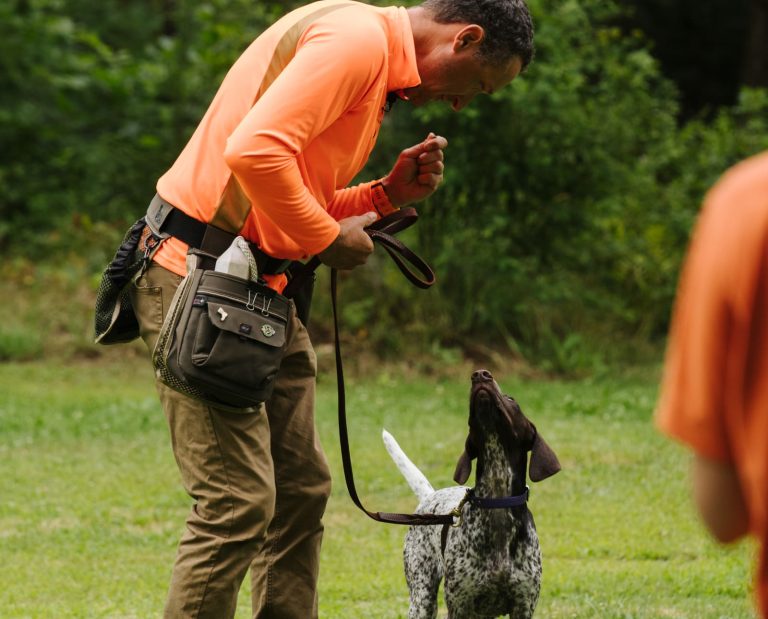
The decision not to breed Daisy Mae was painful. She’s all I wanted in a gundog; however, a longer & deeper look helped me make a better decision. Everyone I meet loves her and wanted a pup from her – but they’re also wanting her training, not just her genes. She’s a hard-charging machine, but also big for a bitch and her hips aren’t “Excellent.” Breeding wouldn’t hurt her, but it wouldn’t improve the line, either. And there’s the decision-maker: If breeding her doesn’t improve the great line that’s already there, I’ll enjoy all she is for as long as I can. I’ll enjoy the uninterrupted hunts and times we share. She’s no less for it!
I love this article. Spot on! Thank you
I have never bred any of my dogs. I always had males up until my present dog. Many times I was asked to breed my males in the 35 plus years of having males. My present dog is a female and I am not a breeder and won’t start now; she is fixed. I have bought my dogs from breeders and never had a problem with any of them. If there was an issue it was probably my fault. I leave the breeding to breeders and don’t feel I help myself by breeding dogs that maybe should not be bred.
This article is very disappointing. The only people trying to recreate some well loved hunting buddy are back yard breeders. Historical preservationist breeders do not ever think this way. We struggle to find the best genes to better the breed. Many bird dog breeds suffer from a too small gene pool. The breeds will go extinct without good breeding.
If you can buy a better dog than you can breed, don’t breed. I’ve had 2 dogs in my lifetime that were (are) excellent. One has heat intolerance but finds more birds with great style than anyone I hunt with or trial with. He’s an AFC FC with multiple national placements. We won’t breed him as the heat intolerance is heritable. The other, a Vizsla, is a DC FC AFC with multiple national placements as well. He is legit on birds, a real bird finding machine. He was a bear to break because of his high prey drive. Likely we’ll be breeding him, because he will improve the breed.